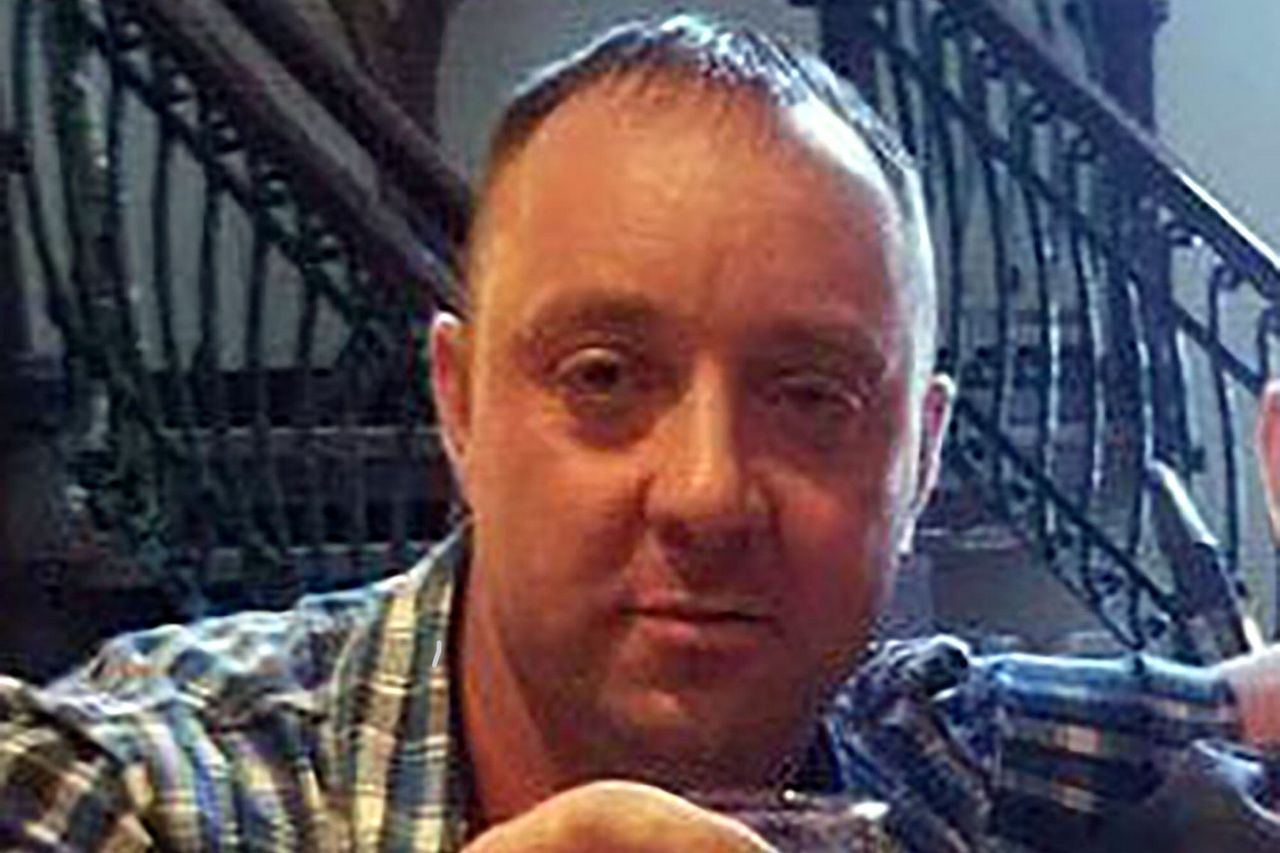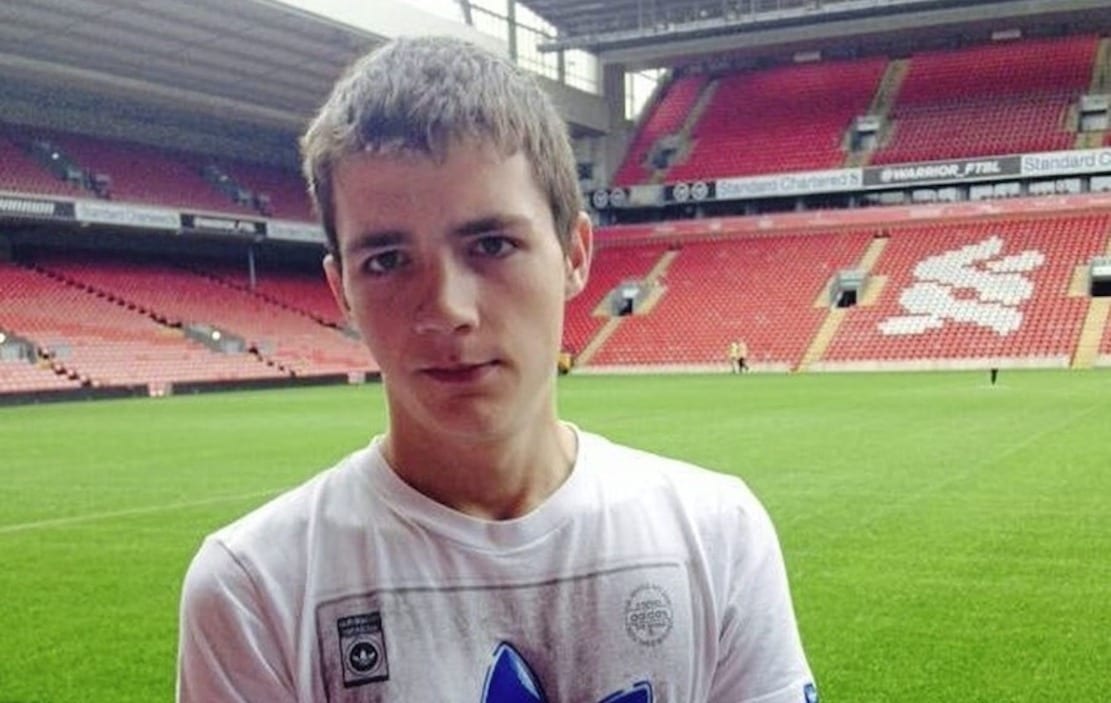
A self-confessed killer stabbed his victim 50 times to the head and neck in a “sustained and relentless attack” in Craigavon, a court heard today.
Craigavon Crown Court also heard that after the attack on a towpath near Lake Road, John Paul Whitla (44) went to the home of his victim, Nathan Gibson, and claimed he had been hurt.
He then convinced Mr Gibson’s girlfriend to help clean the blood off.
Last September, Whitla, of no fixed abode, was handed a life sentence after he entered a guilty plea to the murder of Mr Gibson on January 16, 2020.
Whitla also admitted false imprisonment and common assault of his victim’s girlfriend, arising from the same incident.
Also known as “Eyeball Paul”, Whitla has already been handed a life sentence, with the court now having to set a minimum tariff the killer must serve before the Parole Commissioners can consider whether he is safe to be released and on what licence conditions.
Opening the facts of the case for the first time, prosecuting KC Frank O’Donoghue outlined how Mr Gibson told his girlfriend he was meeting Whitla as he had “three boxes of buds for him to sell” (referring to prescription painkiller pregabalin).
The two men had known each other since childhood but “had become friendlier” over the past few years, said the lawyer, adding that Mr Gibson’s girlfriend was later woken from her sleep by Whitla knocking on her door.
When she answered, she saw that Whitla’s hands and arms were “covered in blood up to both his elbows” and, with the defendant claiming he had been attacked and hurt, she took him into the kitchen to help him clean himself.
She noticed, however, that Whitla did not have any wounds and became more suspicious when Whitla took out a mobile phone which she recognised as belonging to Mr Gibson.
“He admitted to her that he had killed Nathan,” said Mr O’Donoghue, adding that, according to the witness, Whitla “was very calm”.
Realising that “the defendant was telling the truth, because there was no way that Nathan would hand over his phone, this was when she began to become frightened and really scared”.
The senior barrister told the court: “She told him not to be silly, but the defendant repeated that he had killed Nathan and he then said to her: ‘Why are you panicking? There’s nothing to be worried about. I’m not going to hurt you. You’re a lovely wee girl.’”
Despite claims of not intending to harm her, Whitla stopped Mr Gibson’s partner from leaving the property, ordering her to stay “until Nathan came back”.
Mr O’Donoghue outlined that, for the next period of time, Whitla fluctuated between claiming that Mr Gibson was fine and would return, and often, within the same sentence, telling his petrified victim that “he worked for [the crime gang] The Firm and that they had him kill Nathan”.
He repeated that he had killed Mr Gibson and that he had owed The Firm £7,000 for cocaine, but the debt was taken out in Nathan’s name and he said the crime gang “had to deal with Nathan for that”.
The lawyer explained: “She knew from Facebook that certain people in the area who were involved in drugs called themselves The Firm, and she described herself as being very scared but she did her best not to show it.”
At one stage, Whitla grabbed her by the throat, but she managed to break free before running up the stairs into her bedroom.
Using her bed like a trampoline, she jumped out the first-floor window and then ran to a neighbour’s house to summon help.
As police hunted Whitla, the search uncovered the body of his victim lying on a footpath near Lake Road.
“The body, by that stage, was cold and rigid and CPR was attempted but he was deceased,” said Mr O’Donoghue.
A post-mortem examination revealed that Mr Gibson had sustained 18 stab wounds to his head and a further 31 wounds to his neck.

The pathologist opined that “considerable force” would have been used in the attack.
Arrested and interviewed, Whitla denied responsibility for the killing, claiming instead that he and Mr Gibson had gone to buy drugs when they were attacked by “two or three men who had been hiding in the bushes”.
Turning to sentencing principles and guidelines, Mr O’Donoghue submitted that “it is manifestly a higher starting-point case… as it involved, we say, gratuitous violence and extensive multiple injuries inflicted on the victim during a sustained and relentless attack to his head and upper trunk”.
He further argued that another aggravating factor was that, in the Crown view, there had been an element of planning in the attack as Whitla had armed himself with a knife and met his victim on a “remote pathway during the hours of darkness on a January evening”.
Whitla’s actions following the brutal stabbing should also serve as an aggravating factor, said Mr O’Donoghue, as should his “extremely bad record” of previous convictions.
As regards mitigation, he contended: “There is no mitigation other than the fact that he has pleaded guilty, albeit in the mouth of the trial.”
Defence KC Eugene Grant said that despite evidence that Whitla has a low IQ, which puts him in the bottom 1% of the population, and has a traumatic brain injury, “there is some insight here that the victim’s family will miss him”.
“He apologies and says that it should not have happened,” Mr Grant told the court.
Remanding Whitla back into custody and adjourning the case to Wednesday 13 December, Judge Patrick Lynch KC said there had been a significant amount of material and reports placed before him, so he wanted to properly consider those, as well as the barristers’ submissions.



